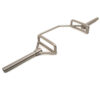Nutrition
Daily energy calculator (kilojoules and calories) for weight maintenance or weight loss
Dietary energy
The energy derived from your diet is used for sustaining your body’s core functions, such as breathing, and for undertaking physical activities.
The energy that we get from food is measured in kilojoules. The energy unit used in some countries, such as the United States of America, is calories.
Kilojoules (or calories) give us an indication of how much energy we’ll get from consuming a particular food or drink. In Australia, the amount of energy a packaged food or drink contains must be shown in the Nutrition Information Panel. The Australian Government’s Eat For Health website has guidance on the energy content of non-packaged foods, such as fruit and vegetables.
Energy in and energy out
If your dietary energy intake is higher than the amount of energy needed to sustain your life (known as the basal metabolic rate) and perform physical activities, then excess energy will be stored by your body as fat. Excess energy intake on a regular basis can lead to increased levels of body fat (weight gain).
Conversely, if your dietary energy intake is lower than the total energy you expend to sustain your life and perform any physical activities, then your body will use stored energy (e.g. fat) to cover the energy deficit. Deficient dietary energy intake over a prolonged period of time can result in decreased levels of body fat (weight loss).
It’s important that weight loss is undertaken in a healthy and sustainable manner, otherwise there can be detrimental effects on health and wellbeing. For example, unintended muscle loss can occur if a dietary energy deficit is too significant over a prolonged period of time, as the body will use proteins in muscle tissue as a source of energy to sustain itself if other energy sources (e.g. fat) are depleted.
Consider your individual circumstances and goals
Daily energy requirements vary depending on a person’s age, gender, body composition and physical activity levels.
Your optimal energy intake will also be influenced by your current health, any medical conditions you may have, and your desired body weight or body composition (e.g. level of muscle mass and fat).
Daily Energy Calculator (outputs results in both kilojoules and calories)
Use our Daily Energy Calculator to determine the appropriate dietary energy intake to maintain your current weight, or to lose weight if that’s your goal.
Enter your current weight to get the Estimated Energy Requirement for Maintenance (EERM).
If you’re seeking to lose weight, simply enter your desired weight to get the Desirable Estimated Energy Requirement (DEER).
Our calculator outputs the results in both kilojoules and calories.
Our Daily Energy Calculator is a very useful guide for most people, but it does not substitute for individualised advice from a medical practitioner or allied health professional, particularly for individuals with complex circumstances.
The Daily Energy Calculator is for adults (people aged 18 years or older).
The calculator is suitable for people weighing 48kg – 120kg. For weights outside of this range, advice should be sought from a medical practitioner or allied health professional.
Our calculator uses the Schofield Equation with adjustments to match the latest guidance from the Australian Government’s National Health and Medical Research Council (NHMRC).
Full details of the NHMRC recommendations, such as estimated energy requirements (EER) for reference weights, are outlined in the following publication (be warned – it’s 320 pages of dense reading!): National Health and Medical Research Council (NHMRC): Nutrient Reference Values for Australia and New Zealand Including Recommended Dietary Intakes












Paul Smith
28 December 2022 at 5:22 pm
Weight calculator is limited to 120kg only which gives a false reading if your heavier.
HealthyLiving.com.au
28 December 2022 at 8:56 pm
Hi Paul,
Thanks for reading and for taking the time to post your comment, much appreciated.
You’re absolutely correct, the calculator is limited to a maximum of 120kg. The article includes a note about this: “The calculator is suitable for people weighing 48kg – 120kg. For weights outside of this range, advice should be sought from a medical practitioner or allied health professional.” However, to make this clearer up front, we’ll look to include a note near the applicable calculator field on the minimum and maximum range.